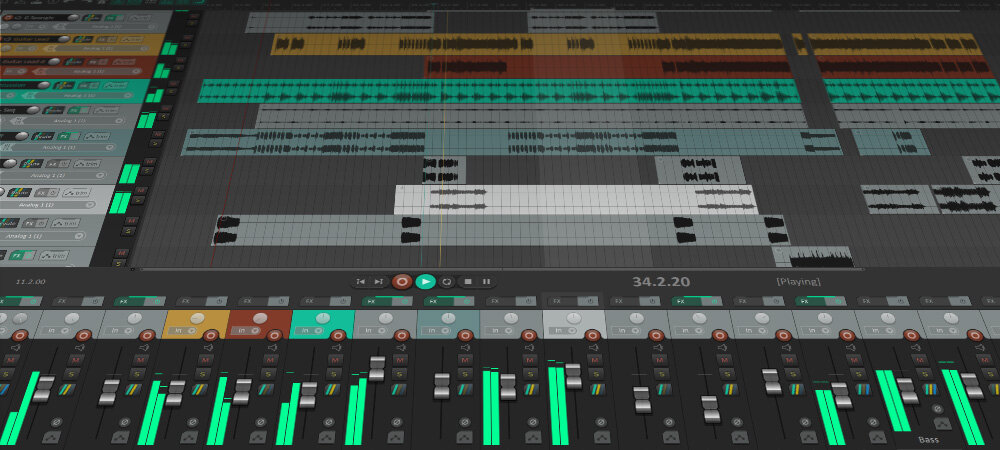MIDI has been around since 1983 when the standard was officially codified. It’s been a rare success in terms of computation standards, with few revisions since its inception. It has been a staple of music composition, be it in your favorite video game, DJ setlist, movie score, or pop artist; MIDI can be found everywhere electronic music is. It might not be a surprise that Koreographer Pro leans on MIDI for its most professional, expedited workflow. As we’ve covered before, Koreographer uses embedded musical data to stream information back to game systems in time with the music. If Koreographer isn’t a tool for music composition, then why use MIDI?
Most music, even if it has a physically performed portion by a band, uses some form of MIDI for either composition purposes or to use MIDI sound banks to compliment recorded performances. It stands to reason that *most* music has some kind of corresponding MIDI file that has the musical information plotted out. To have access to this MIDI file gives any developer working with Koreographer potential access to the most accurate music notation. If you’re familiar with Koreographer, this means that the MIDI data can be imported into a Unity project with the corresponding .ogg/.wav files to provide that sample perfect data to the game. The game will then use that data to trigger events that align perfectly with the music. You could use percussive information to set a beat map for animation or music notation to drive changes in particle effects. This is super helpful in the creation of music games, or just using music to enhance the ambiance of a game. MIDI is a huge boon for productivity because instead of manually plotting beats/notes/measure ends manually, you can extract MIDI data with much less effort.
Reaper’s MIDI composition layout. Easy and effective for plotting composition to music.
This is all well and good, but what if you don’t have access to the MIDI? The great thing about MIDI’s long-standing format is that the tools to create it are very mature. Early on in Koreographer’s development, we made a decision. We could either recreate a full-featured DAW (digital audio workstation) into Unity, or we could just rely on fully-matured software that already exists. While we created a functional music mark-up UI into Unity, we left the most advanced features to the established DAWs. We didn’t want to reinvent the wheel. Products like Ableton or Reaper have features to breakdown music, they utilize well-developed audio transformation algorithms to analyze music, and have workflow layouts that are conducive for editing compositions. This simply would take too much time and effort to recreate it in Unity’s UI frameworks. “But we aren’t composing music, and I don’t have our composer’s MIDI files!” you might exclaim. “What does a DAW have to do with Koreographer?” There is an anecdote for that.
Harmonix used a special skinned version of Reaper to make it easy for anyone to decode how to use MIDI to control most of the animation, gem layouts, etc…. in RockBand.
The development team at Harmonix is known for their spot on gem design and musical feel in their games. It’s for good reason. Not only do they have composers and audio designers tuning for musical feel, but they utilize excellent tools to get them there. They had the option to develop the track design tools themselves, but they came to the same decision we did: use a full-featured DAW. Sometimes it’s easiest to use the years of experience from another team to your benefit. The team on Rockband didn’t use DAWs to compose music, however. They used the MIDI spec to feed data into their games to control everything from gem layouts on the track to animation controls. MIDI is a sample perfect notation sheet that doesn’t specifically have to represent music composition. Think of it as a data type that is used to design control signals based on music signature or waveform. This is the foundation of so many music games and the reason we implore people to explore MIDI when using Koreographer.
MIDI is the perfect data type to translate into Koreographer control data. MIDI-based DAWs are fully developed, optimized, full-featured tools that are far better than anything we can create within Unity. If you’re serious about creating a music rhythm game, or just want to use the best workflow to create music markup for Koreographer, do yourself a favor and download Reaper, for free! If you want tons of features and a ton of support for fantastic plugins, try Ableton and thank us later. Most of all, happy listening and happy designing!





